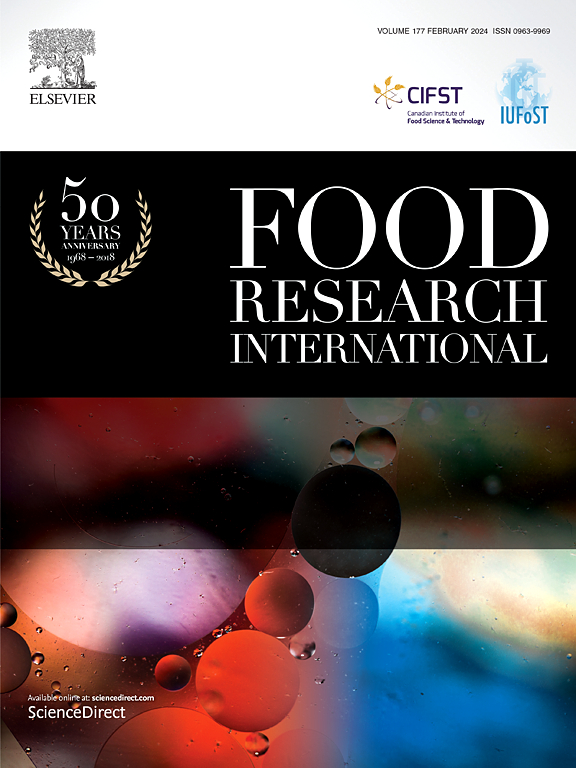Edible mushrooms as meat analogues: A comprehensive review of nutritional, therapeutic, and market potential
IF 7
1区 农林科学
Q1 FOOD SCIENCE & TECHNOLOGY
引用次数: 0
Abstract
Meat products are popular for their high protein content and sensory attributes, but their production poses health, environmental (human causes greenhouse gas emissions up to 14.5 %), and ethical challenges, prompting a search for sustainable meat alternatives. Additionally, consuming red meat can lead to health-related issues. In addressing these issues, the shift toward plant-based proteins has gained popularity in recent decades as an alternative to animal proteins due to their lower production costs, wide availability, and rich bioactive content. Globally, scientists are continuously exploring protein-rich, sustainable, and health-promoting meat alternatives to conventional meat products. Toward achieving this approach, edible mushrooms can serve as potential healthier meat alternatives due to their natural umami flavour, meaty texture, tastes, and high in proteins, essential amino acids, polysaccharides (β-glucan and chitin), vitamins, minerals, polyphenols, antioxidants, and therapeutic properties. In addition, mushrooms are the only vegetative source of vitamin D and are recognised for their therapeutic potential, attributed to a range of medicinal properties like anti-tumour, antioxidant, immunomodulatory, anti-microbial, anti-inflammatory, cardiovascular-protective, anti-obesity, anti-diabetic, anti-fungal, anti-cancer, and various other health-promoting properties. As mushroom hold significant potential as meat analogues, their nutritional comparison with other plant-based protein sources were also highlighted. Moreover, commercialisation challenges, including scalability, cost-effectiveness, shelf-life stability, and consumer perception of mushroom-based meat analogues were also discussed. This review aims to assess the potential of edible mushrooms in the development of meat analogues, highlighting key findings on mushrooms as primary ingredients in both meat and nonmeat analogues, nutraceutical benefits, the impact of mushrooms on product quality, consumer perception, and the market outlook for mushroom-based meat analogues.
食用菌作为肉类类似物:营养、治疗和市场潜力的综合综述
肉类产品因其高蛋白含量和感官特性而广受欢迎,但它们的生产带来了健康、环境(人类造成的温室气体排放量高达14.5%)和道德挑战,促使人们寻找可持续的肉类替代品。此外,食用红肉会导致健康问题。为了解决这些问题,近几十年来,植物蛋白作为动物蛋白的替代品越来越受欢迎,因为它们的生产成本较低,可用性广,生物活性含量丰富。在全球范围内,科学家们正在不断探索富含蛋白质、可持续和促进健康的肉类替代品,以取代传统的肉类产品。为了实现这一目标,食用蘑菇可以作为潜在的更健康的肉类替代品,因为它们具有天然的鲜味、肉质、味道,富含蛋白质、必需氨基酸、多糖(β-葡聚糖和几丁质)、维生素、矿物质、多酚、抗氧化剂和治疗特性。此外,蘑菇是维生素D的唯一植物来源,并因其治疗潜力而得到认可,这归功于一系列的药用特性,如抗肿瘤、抗氧化、免疫调节、抗微生物、抗炎、心血管保护、抗肥胖、抗糖尿病、抗真菌、抗癌和各种其他促进健康的特性。由于蘑菇具有作为肉类类似物的巨大潜力,因此它们与其他植物性蛋白质来源的营养比较也得到了强调。此外,还讨论了商业化挑战,包括可扩展性、成本效益、保质期稳定性和消费者对蘑菇基肉类类似物的看法。本文旨在评估食用蘑菇在肉类类似物开发中的潜力,重点介绍了蘑菇作为肉类和非肉类类似物的主要成分的主要发现,营养保健益处,蘑菇对产品质量的影响,消费者的认知以及蘑菇为基础的肉类类似物的市场前景。
本文章由计算机程序翻译,如有差异,请以英文原文为准。
求助全文
约1分钟内获得全文
求助全文
来源期刊

Food Research International
工程技术-食品科技
CiteScore
12.50
自引率
7.40%
发文量
1183
审稿时长
79 days
期刊介绍:
Food Research International serves as a rapid dissemination platform for significant and impactful research in food science, technology, engineering, and nutrition. The journal focuses on publishing novel, high-quality, and high-impact review papers, original research papers, and letters to the editors across various disciplines in the science and technology of food. Additionally, it follows a policy of publishing special issues on topical and emergent subjects in food research or related areas. Selected, peer-reviewed papers from scientific meetings, workshops, and conferences on the science, technology, and engineering of foods are also featured in special issues.
 求助内容:
求助内容: 应助结果提醒方式:
应助结果提醒方式:


